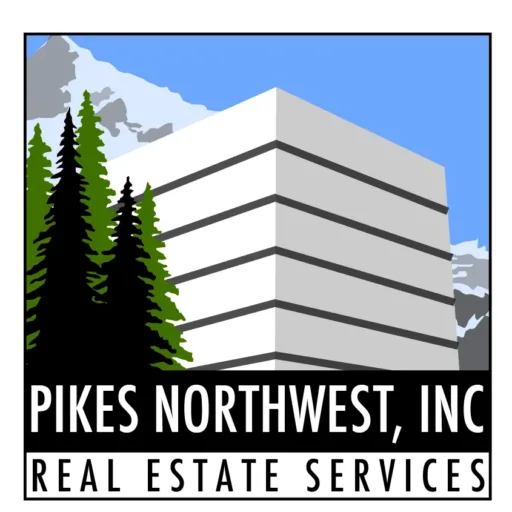
Commercial property ownership, like most things we own for investment or pleasure, can be incredibly rewarding or challenging. It can even be all that in one day! However, it’s not necessarily like owning a boat – and if you know what that means, you’re either a current or former boat owner. Having owned a few boats, I can tell you the word boat really is an acronym for “Break Out Another Thousand,” especially if they are boats in Alaska and used for more than just pleasure craft. Commercial property is also a little more predictable than owning a boat in southeast Alaska. And, hopefully more financially rewarding!
To make sure your experience with commercial property is a good one really starts with reviewing some fundamentals. And, for the sake of this short article, I’ll cover four of the more important fundamentals. Here they are:
- Is your property at its highest and best use? Even today, when you look around, some properties are sadly not and it can be readily apparent. I recently analyzed a property at the request of the owner. It fronted a main arterial with a significant car count. The property had a wide variety of tenants (tenant mix is off): From salvage to a restaurant to a used car lot and, yes, more. The owner had a goal to improve the property by creating a more aligned tenant mix and to eliminate some of the uses that really didn’t fit and a detriment to the overall value. I commended him on his plan and actually having one. Many do not. However, based on the leases in place and available cash flow, it will take the owner about 7 to 10 years to fully maximize the value. Therein lies the hard work and time it will take to realize the latent value and when that time comes, here’s the kicker, the property value could potentially double from where it’s at now –given its prime location. If you’re an investor looking to add value to a property, this is but one way to achieve it.
- Do you have an established reserve and reserve budget? This is a function your property management company should be providing if it makes sense for your property. We encourage owners to reserve for major expenses like HVAC replacements (these can easily run $10,000 and up for an RTU – roof top unit), roof replacement or repair, painting, tenant improvements, parking repairs, lease commissions and so on. When you have a reserve set aside to fund these future expenses, it sure takes the pressure off when it comes time to get the job done. Plus, if you decide to sell before you are required to make these expenditures, it’s just cash in your pocket so you win either way.
- Are you protected from Loss? In a recent lease review on a property we were taking over, my team and I noted that one tenant had failed to provide a certificate of insurance (COI). Turns out, not only did they not have one to provide to us, they didn’t have insurance! This is a problem waiting to happen. A great property management company should be checking that box for you and staying on top of what leases call for (this is basic lease administration). A fire, water damage, and so on can create a major headache and major financial loss for the owner and for the tenant/business occupying the space if one or the other happens to miss renewing their insurance. The event itself is bad enough to deal with, right? Given the recent wildfires in Oregon, and the other potential disasters in our area (floods, earthquakes, etc.), you want to protect your investment and you want to be protected from your investment. I have yet to see a lease that does not require insurance of some kind to protect the parties, but I have seen properties without insurance. Be wary and ask the question of your property manager: Are my tenants following their lease with regard to insurance? Is my building properly insured? We work with a number of different insurance agencies and brokers that help mitigate this kind of risk and they do a great job. Many times, we can save the owner money, too, when we help with the insurance shopping process.
- And finally, are you happy with the financial reporting on your property? Every month, your property manager should be providing you a set of reports that details out the activity of your investment; i.e. the income and expenses. That should include a rent roll report and monthly cash flow detail at the very least. Many properties call for more sophisticated and comprehensive reports and maybe even a cover letter reviewing important information you should know. These reports should arrive in a timely fashion and by the 10th of the month or so, unless you have made other arrangements. The reporting should cover the previous month. It’s helpful too, when the property management company forecasts future expenses (such as – “Jack, next month, as a reminder, we’ll be replacing RTU #3 on the south property and we will be expensing that out as a capital expense with immediate depreciation. The reserve account has sufficient funds to cover the $10,500 replacement.”) and lets you know of important dates that are coming up, like lease renewals, and so on.
Just reviewing four of these, it’s clear that owning investment property requires forethought, the ability to mitigate risk and eliminate surprises. It requires having a great team aligned with your values and goals surrounding you. Sounds a bit like building a business doesn’t it? There really are a lot of similarities.
When hiring a licensed and insured third party to manage your property, you should get a portion of your life back – it should be better, and you should have more time to enjoy it! If we can help you take back some time so you can enjoy yours more, reach out. We’re here to help.

 My name is Alyssa Flores. I was raised here in Salem, Oregon. I’ve been working in property management for the past 6 years, and am excited to be part of the Pikes Northwest team. In my spare time I enjoy being with my family and friends.
My name is Alyssa Flores. I was raised here in Salem, Oregon. I’ve been working in property management for the past 6 years, and am excited to be part of the Pikes Northwest team. In my spare time I enjoy being with my family and friends. My experience in property management spans 15 plus years including selling homes in Southern CA. I relocated back to the NW after 20 plus years and I’m really enjoying the beauty of the seasons! I’m excited to add more Commercial Property Management experience to my skill set!
My experience in property management spans 15 plus years including selling homes in Southern CA. I relocated back to the NW after 20 plus years and I’m really enjoying the beauty of the seasons! I’m excited to add more Commercial Property Management experience to my skill set!